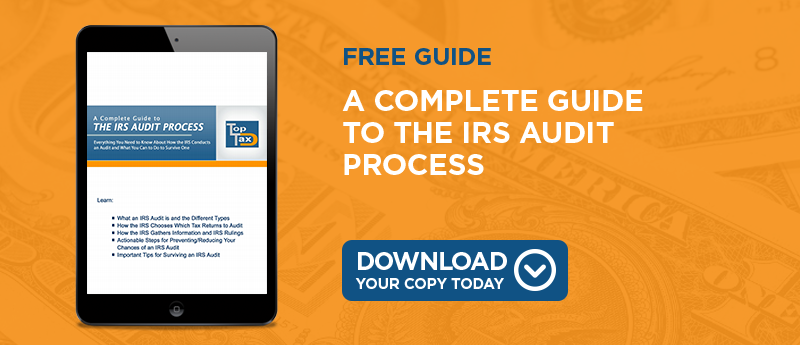.jpg?width=1000&name=The%20IRS%20Collection%20Appeals%20Program%20(CAP).jpg)
Have you been hit with a notice that the Internal Revenue Service (IRS) will be "examining" your income tax return? If so, you're being audited. The fear of an IRS audit is enough to intimidate many taxpayers into complying with whatever calculations the agency comes up with. However, IRS agents can make mistakes during tax preparation too, and you shouldn't feel pressured to agree to their findings right away. The good news is that the agency makes it relatively easy for taxpayers to file an appeal of their audits.
Common Reasons for IRS Audits
Most often, the IRS decides to audit a return because of common tax audit red flags, such as discrepancies in the reporting or IRS agents suspect that a figure has been underrepresented. For example, if your income has averaged about $50,000 per year, and it suddenly drops down to $10,000, the agency may be suspicious of your reporting.
The IRS will sometimes decide to examine a return to make sure that the deductions being claimed are legitimate. A small business owner who takes a large deduction for business use of home may be asked to submit proof of this deduction by mail. If he or she does not comply, then the agency may decide to conduct an in-person audit. In very rare cases, the IRS will randomly select a tax return for auditing.
How to File an IRS Audit Appeal
If you disagree with the findings contained in the audit, the most important thing you should do is refuse to sign the report. If you sign, you have given your consent to the findings, and you will be unable to contest them later. Instead of signing the audit report, wait for the IRS to mail you a notice that explains how to submit your appeal. You typically have 30 days after the audit is completed to do this.
The way you appeal your audit depends on the amount the IRS says you owe. If you owe less than $2,500, you can just tell the auditor that you want to appeal the decision. If you owe more than that, though, you'll need to send a letter that discloses your intent to file an appeal. The IRS will also accept a completed copy of Form 12203, which you can simply download from the IRS’ website and fill out yourself.
Dealing with an IRS audit is nearly always a difficult predicament. Before you agree to the agency's findings, consider appealing your IRS audit so that you'll have time to present your side thoroughly.




